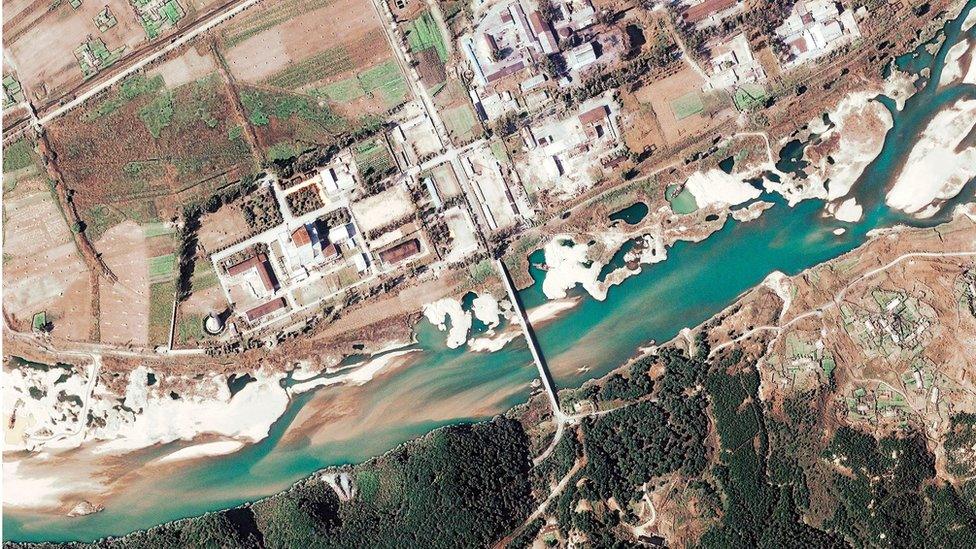North Korea: Mystery quake 'not nuclear test'
- Published
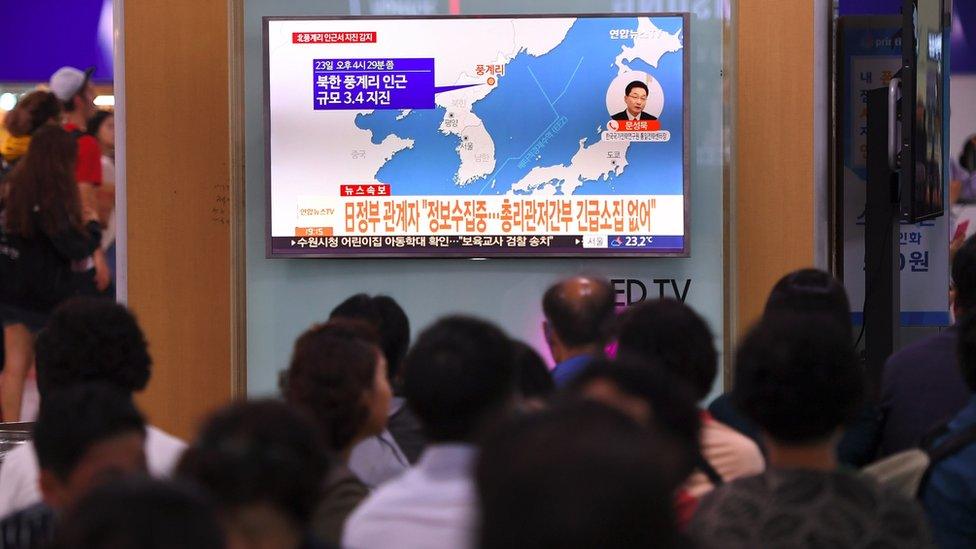
News of the earthquake was broadcast in Seoul, South Korea
A shallow magnitude 3.4 tremor has been detected near North Korea's nuclear test site, but experts believe it was a natural earthquake.
South Korea said the specific soundwaves of man-made quakes were not recorded, while China said the tremor's features were of a natural quake.
International nuclear test monitors expressed a similar view.
North Korea - which has recently carried out a series of nuclear tests - has so far made no comments.
Pyongyang's latest massive nuclear test on 3 September was widely condemned at the UN, triggering more international sanctions against North Korea.
The size of Saturday's tremor was smaller than the earthquakes registered as a result of all of North Korea's six nuclear tests.
After the last test, which North Korea said was a hydrogen bomb, initial reports from the US Geological Survey (USGS) put the tremor at magnitude 5.6 with a depth of 10km (six miles) - but this was later upgraded to magnitude 6.3 at 0km.
Saturday's quake was recorded at a depth of 0km in North Hamgyong province, home to the Punggye-ri nuclear site, South Korea's meteorological agency said.
The USGS also said it occurred in the nuclear test area - but added that its seismologists assessed it as having a depth of 5km.
South Korea said no specific soundwaves generated by artificial earthquakes were detected.
China's Earthquake Administration said the quake was not a nuclear explosion and had the characteristics of a natural tremor.
The administrations had initially said it was a "suspected explosion"
Analysts from the Comprehensive Nuclear Test Ban Treaty Organization (CTBTO), the UN-backed monitoring group, said the quake was "unlikely man-made".
CTBTO executive secretary Lassina Zerbo tweeted, external that the quake occurred "about 50km from prior tests".
Allow X content?
This article contains content provided by X. We ask for your permission before anything is loaded, as they may be using cookies and other technologies. You may want to read X’s cookie policy, external and privacy policy, external before accepting. To view this content choose ‘accept and continue’.
Allow X content?
This article contains content provided by X. We ask for your permission before anything is loaded, as they may be using cookies and other technologies. You may want to read X’s cookie policy, external and privacy policy, external before accepting. To view this content choose ‘accept and continue’.
"The most probable hypothesis currently is that it is the consequence of the previous event... which could still have further repercussions," Mr Zerbo told the AFP news agency, referring to the 3 September nuclear test.
Some North Korea analysts suggested that the cause of Saturday's quake could have been tunnel collapses at the site after the test.
Meanwhile, Russia said that radiation levels were normal in the area following the quake.
The USGS earlier said it could not yet make a judgment as to the cause.
How could war with North Korea unfold?
North Korea has refused to stop its missile and nuclear tests, despite successive rounds of UN sanctions and international criticism. Its leaders say nuclear capabilities are its only deterrent against an outside world seeking to destroy it.
On Saturday, China said it had moved to limit North Korea's oil supply and would stop buying textiles from its traditional ally in line with the latest UN sanctions.
Earlier, Russian Foreign Minister Sergei Lavrov compared US President Donald Trump and North Korean leader Kim Jong-un to children fighting in a kindergarten.
The pair had swapped insults, with Mr Trump calling the North Korean a suicidal "rocket man" and being labelled "mentally deranged" and "a dotard" in return.
Previous tests

- Published3 September 2017
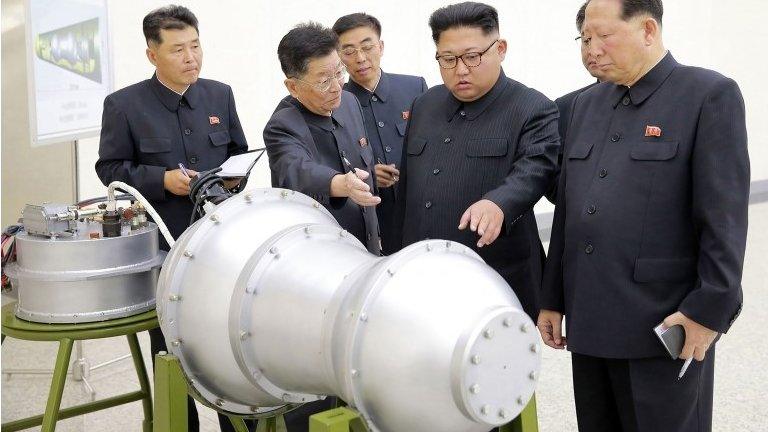
- Published23 September 2017
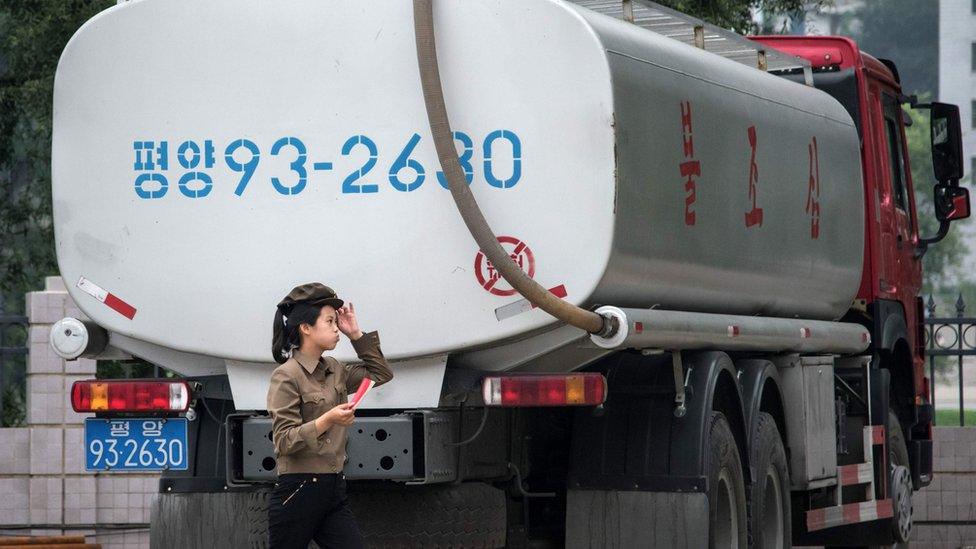
- Published21 April 2020
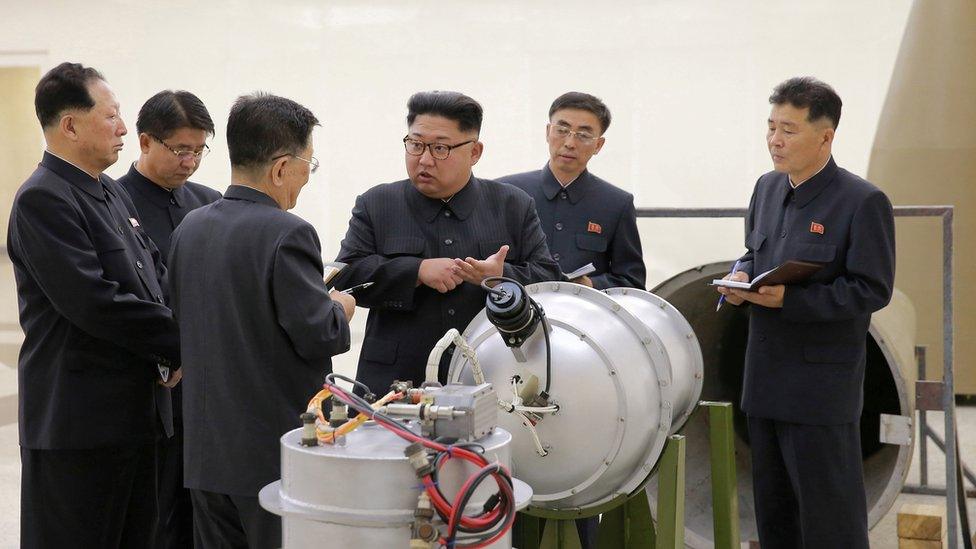
- Published10 August 2017
